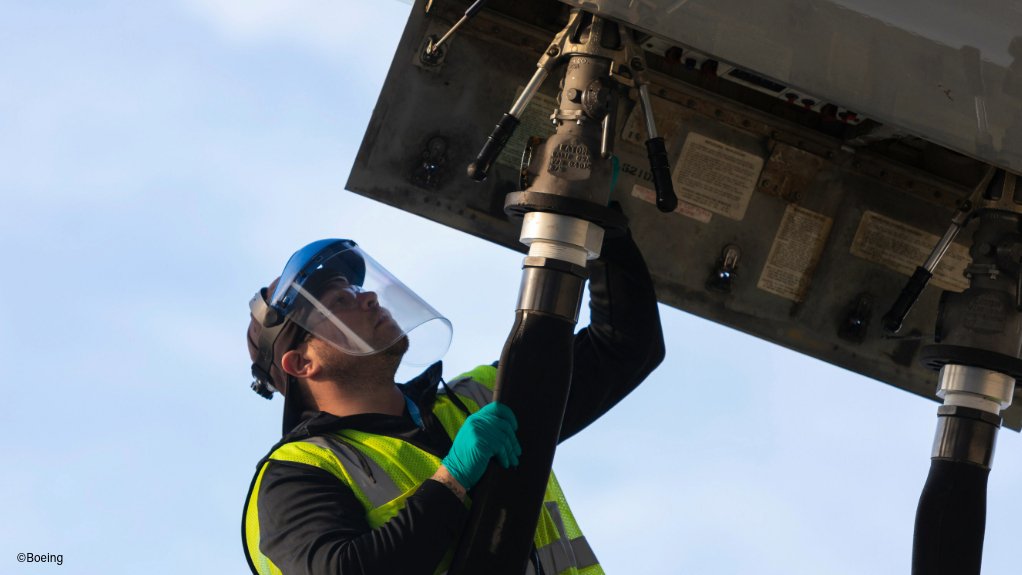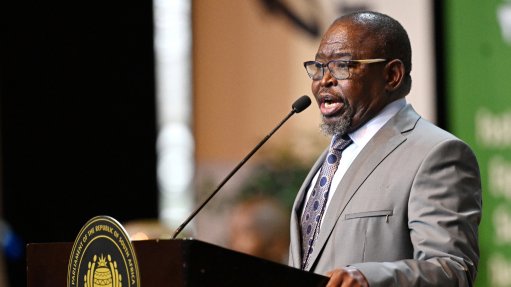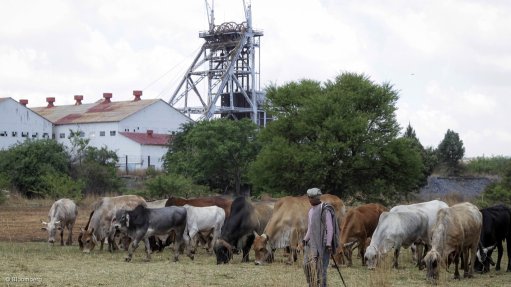IATA disappointed at slow ramp-up of sustainable aviation fuel production
The International Air Transport Association (IATA), which is the global representative body for the airline industry, has lamented the slower-than-hoped-for ramp-up of sustainable aviation fuels (SAF) production during this year. While 2024 SAF production is, at 1 000 000 t (or 1.3-billion litres), 100% higher than the 2023 figure of 500 000 t (600-million litres), it is still far short of the previous SAF production estimate for this year, which was 1 500 000 t (1.9-billion litres). SAF production accounted for 11% of global renewable fuel production this year, but came to just 0.3% of total jet fuel production.
SAF are non-fossil-derived liquid fuels that generate much lower carbon emissions, across their entire lifecycle, than conventional jet fuels. SAF can reduce lifecycle CO2 emissions by up to 80% compared with fossil fuels. Moreover, SAF contain far fewer impurities than fossil fuels, resulting in reductions in sulphur dioxide and particulate matter emissions that are even higher than 80%.
“SAF volumes are increasing, but disappointingly slowly,” noted IATA director-general Willie Walsh. “Governments are sending mixed signals to oil companies which continue to receive subsidies for their exploration and production of fossil oil and gas. And investors in new generation fuel producers seem to be waiting for guarantees of easy money before going full throttle. With airlines, the core of the value chain, earning just a 3.6% net margin, profitability expectations for SAF investors need to be slow and steady, not fast and furious. But make no mistake that airlines are eager to buy SAF and there is money to be made by investors and companies who see the long-term future of decarbonisation. Governments can accelerate progress by winding down fossil fuel production subsidies and replacing them with strategic production incentives and clear policies supporting a future built on renewable energies, including SAF.”
Next year, SAF production is forecast to reach 2 100 000 t (2.7-billion litres). This will amount to 0.7% of total jet fuel production and 13% of global renewable fuel production.
To cut aviation carbon emissions by 65% by 2050, IATA points out that SAF will have to provide 80% to 90% of total aviation fuels by that year. Production of such quantities of SAF will require from 5 000 to 7 000 biorefineries. Achieving such numbers would, it has been calculated, require total global investments of, in the best-case scenario, about $128-billion a year for the next 30 years. But that yearly figure is way below the $280-billion a year invested globally in wind and solar energy from 2004 and 2022.
IATA highlights that there are three complementary ways to accelerate SAF production. One is simply increasing the co-processing of SAF at existing crude oil refineries; such refineries could process up to 5% of approved renewable energy feedstocks; by 2050 such co-processing could save $347-billion in capital expenditure by obviating the need to build more than 260 renewable fuel plants. Another pathway is to diversify SAF production; there are 11 approved SAF production pathways but the currently dominant one, which employs used cooking oils and animal fats, has limited feedstocks; alternative pathways, with ample feedstocks, need to be implemented on a large scale. And the third way is to create a global SAF accounting framework, to allow airlines to benefit from SAF everywhere, while avoiding double-counting; such a framework is essential to create a global SAF market.
Article Enquiry
Email Article
Save Article
Feedback
To advertise email advertising@creamermedia.co.za or click here
Press Office
Announcements
What's On
Subscribe to improve your user experience...
Option 1 (equivalent of R125 a month):
Receive a weekly copy of Creamer Media's Engineering News & Mining Weekly magazine
(print copy for those in South Africa and e-magazine for those outside of South Africa)
Receive daily email newsletters
Access to full search results
Access archive of magazine back copies
Access to Projects in Progress
Access to ONE Research Report of your choice in PDF format
Option 2 (equivalent of R375 a month):
All benefits from Option 1
PLUS
Access to Creamer Media's Research Channel Africa for ALL Research Reports, in PDF format, on various industrial and mining sectors
including Electricity; Water; Energy Transition; Hydrogen; Roads, Rail and Ports; Coal; Gold; Platinum; Battery Metals; etc.
Already a subscriber?
Forgotten your password?
Receive weekly copy of Creamer Media's Engineering News & Mining Weekly magazine (print copy for those in South Africa and e-magazine for those outside of South Africa)
➕
Recieve daily email newsletters
➕
Access to full search results
➕
Access archive of magazine back copies
➕
Access to Projects in Progress
➕
Access to ONE Research Report of your choice in PDF format
RESEARCH CHANNEL AFRICA
R4500 (equivalent of R375 a month)
SUBSCRIBEAll benefits from Option 1
➕
Access to Creamer Media's Research Channel Africa for ALL Research Reports on various industrial and mining sectors, in PDF format, including on:
Electricity
➕
Water
➕
Energy Transition
➕
Hydrogen
➕
Roads, Rail and Ports
➕
Coal
➕
Gold
➕
Platinum
➕
Battery Metals
➕
etc.
Receive all benefits from Option 1 or Option 2 delivered to numerous people at your company
➕
Multiple User names and Passwords for simultaneous log-ins
➕
Intranet integration access to all in your organisation





















